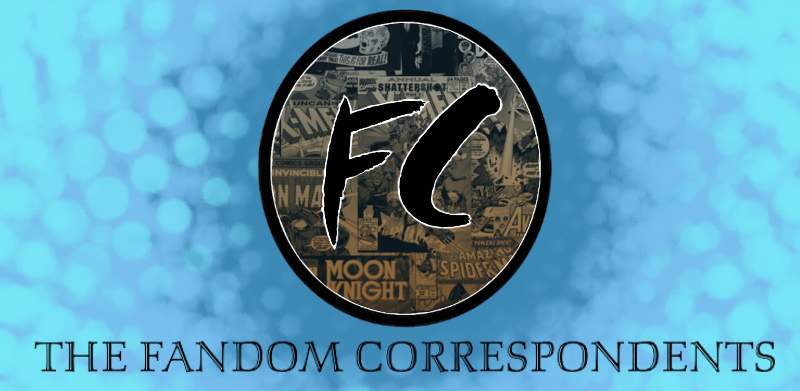During our current pandemic I have spent a lot of time listening to podcasts and watching YouTube commentators. I have found that I enjoy the personalities who examine movies, video games, and comics through a literary lens the most. Commentators like Nerdwriter and Joseph Anderson are fantastic at doing this very thing. But perhaps the person who does this best is Lindsay Ellis. About a year ago she did a fantastic video on whether Belle from Beauty and the Beast has Stockholm syndrome. While in the process of expertly dismissing this useless critique, as an aside she mentions that Belle does not have an arc, but instead Beast is the one who drives the story. Because of this, Ellis sees Belle’s role as somewhat marginalized in Beauty and the Beast. While I will not disagree with this, especially in terms of feminist film theory, I will say that, in my opinion, the way Belle is characterized and the extent (or lack) of her arc is exactly how one should approach Superman.
Belle is something of an immovable object in Beauty and the Beast. She is a pariah in her small town, simply because her proto-feminist ideology clashes with the people in this village. But what is important is that she does foster opinion. In fact, the two characters who have arcs in this film, Gaston and the Beast, are defined by how their personalities and ideologies crash against Belle’s unflinching character. When I think back to Man of Steel, it is the missed opportunity to have a Superman that the world must reckon with that I find to be so offensive. Both Superman and Belle represent disruption; to values, to worldviews, and personal goals. This is true of how Gaston and Beast come to view Belle. It is also how Superman is viewed by… Lex Luthor.
One of the reasons that treating Batman and Superman in the same manner is inherently wrong is that their respective approaches are inherently different. Batman is a reactionary character. His mission is a reaction to the trauma he has endured, and therefore his stated goal is to prevent that trauma from happening again. Superman is different. While he definitely prevents crime and disaster (unless Zack Snyder is directing), Superman represents a cosmic shift toward goodness. People around him have to react, because someone with this much god-like power choosing to do good is weird. While Lois Lane, Jimmy Olsen, Perry White, and Batman react to Superman in a myriad of ways that prove my point, it is Lex Luthor whose reaction is most interesting. See, another way that Snyder failed miserably is by making Zod Superman’s first villain. I think Zod is an interesting villain, but he is essentially fascist Superman. And by putting the emphasis on him and Kevin Costner, the movie creates this weird morality play wherein Superman must decide if he should use his powers to help the world. It is utterly maddening because the central conflict with Superman has nothing to do with whether or not Superman is good. As with Belle, that is a given. At no point do we think that Belle might side with Gaston, or that she will not do everything in her power to save Beast during the assault on the enchanted castle. But Snyder tries to make the audience believe that Superman might just leave us to our own devices against an alien threat. The issue is that Superman would never act in that way. Yes, he has a tragic backstory, but he was raised by two (non-nihilistic, unselfish) caring parents who taught him right from wrong. More than that they raised him to do what was right. So when his powers reach capacity and as he enters into adulthood, the obvious choice is for him do what he can to help the world. Flying in the air, for all to see, he does everything he can to lift the people of Metropolis. By his actions he sets an example for people, because if this being with god-like power wants to do good, then should I not want to good as well? The answer is yes, unless you are a billionaire with the belief that you are the pinnacle of all mankind.
Beauty and the Beast does not receive enough credit for its nuance. It took me years to realize that a real shift happens when Belle leaves the castle to save her father. Up to that point in the movie the tension lays with whether Belle can learn to love the Beast. But after she reveals her feelings for the Beast to Gaston, the whole movie changes. Gaston, who up to this point is basically a stalker, turns into a homicidal bigot. And while I realize that for his character this is not a stretch, I do find it interesting that the movie does not hint at this aspect of his character until his values are exposed by Belle. Gaston is a rare villain in that he is entirely reactionary. He reacts to Belle’s beauty. He reacts to Belle’s dismissal. And finally, he reacts to Belle’s empathy, which is the particular value that sets him and the townsfolk on their climactic course.
Lex Luthor, when written well, follows a similar line of thought as Gaston, although it must be said that Luthor is definitely a more scientific and logical thinker. But whereas Gaston believes he deserves the “best,” Luthor wants to prove he is the best. His intellectual capabilities, which are immense, are used as proof that he is the superior being in all of humanity. Therefore, even when he does something for the sake of humanity or when he lends his help to a cause apart from his own, Luthor is doing so to prove his own superiority. What little morality or goodness he does have are swallowed up by this drive to be the best. It is here that his goals begin to line up with Gaston. The backstories are immensely different, but at the end of the day both Gaston and Lex Luthor are seeking acknowledgement from the world that they are a special brand of human. And both are unseated by something outside of their own worldview. Gaston literally cannot make sense of the fact that Belle would prefer the Beast over his own company. This challenge to his superiority is what sets him on his bigoted crusade. Luthor literally cannot understand why a being as powerful as Superman would choose to be selfless. It goes against all logic and reasoning. This challenge to Luthor’s view of what superiority means is what sets him on the path to becoming a supervillain.
Which brings me all the way back to the thesis of this article; that Superman should have the same role in a Superman movie that Belle does in Beauty and the Beast. Lindsay Ellis makes the statement that the story of Beauty and the Beast does not allow for the self-actualization of Belle within the plot, but if the character is already self-actualized as a bastion of moral intelligence, then I am not sure how much character growth is necessary within said plot. And this should be especially true of Superman. More than anything, Superman is a symbol of goodness. He is such a symbol of goodness that he has inspired countless “Evil Superman” stories, ranging from The Boys to Invincible to Brightburn, which are all stories whose central conceit is in convincing readers and viewers that someone with the powers of Superman could be evil. When a character is so pure that there is an entire genre devoted to the inversion of said pure character, then that character must be considered self-actualized, at least by most of the culture. We, the viewing public, know who Superman is, which is what makes Zack Snyder and Warner Brothers profound failure with Man of Steel and Justice League even more astounding. And maybe it is controversial to say that Superman should be written like a Disney Princess (its not), but I will always maintain that portraying Superman as an immovable rock that forces people to make definitive moral choices is the most effective way to write a Superman narrative. Belle brings out the best in Beast and shines a light on Gaston’s worse traits. Superman is an ultra-powerful alien who models goodness for the people of Metropolis and exposes Lex Luthor as a narcissistic bully. Its basically the same story. Hopefully, the next time Superman is given a shot at the big screen, Warner Brothers will give us the Disney Princess version of the character that we deserve.


